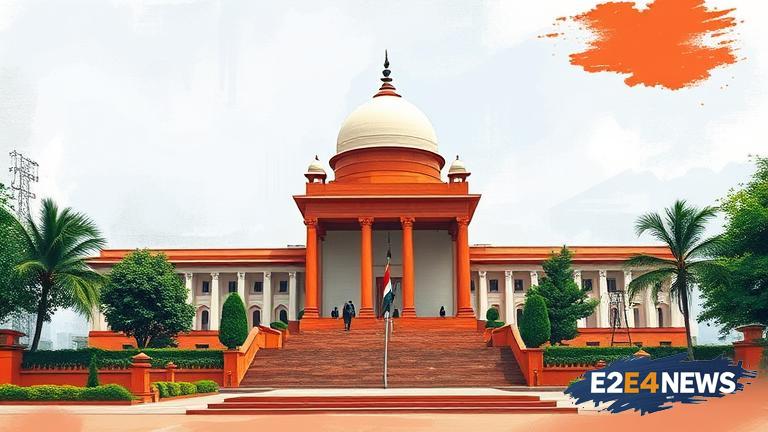The Supreme Court of India has announced that it will hear a plea for the restoration of Jammu and Kashmir’s statehood on August 8. The plea, which was filed by a group of petitioners, challenges the decision of the Indian government to revoke the special status of Jammu and Kashmir under Article 370 of the Indian Constitution. The petitioners argue that the decision was unconstitutional and that it has led to a significant erosion of the rights and freedoms of the people of Jammu and Kashmir. The Indian government, on the other hand, has argued that the decision was necessary to integrate Jammu and Kashmir into the rest of India and to promote economic development in the region. The Supreme Court’s decision to hear the plea has been seen as a significant development, as it could potentially lead to the restoration of Jammu and Kashmir’s statehood and the reversal of the Indian government’s decision. The court’s decision will be closely watched, as it could have significant implications for the region’s political and social landscape. The people of Jammu and Kashmir have been protesting against the Indian government’s decision, and the Supreme Court’s decision to hear the plea has given them new hope. The petitioners have argued that the Indian government’s decision has led to a significant increase in human rights violations in the region, and that it has undermined the democratic process. The Indian government has denied these allegations, and has argued that the decision was necessary to promote stability and security in the region. The Supreme Court’s decision to hear the plea has been seen as a significant victory for the people of Jammu and Kashmir, who have been fighting for their rights and freedoms for many years. The court’s decision will be closely watched, as it could potentially lead to a significant shift in the region’s political landscape. The Indian government has been facing significant criticism for its handling of the situation in Jammu and Kashmir, and the Supreme Court’s decision to hear the plea has added to the pressure on the government to reconsider its decision. The people of Jammu and Kashmir are hoping that the Supreme Court will rule in their favor, and that the region’s statehood will be restored. The Indian government, on the other hand, is hoping that the court will uphold its decision, and that the region will remain a union territory. The Supreme Court’s decision will be a significant test of the Indian government’s commitment to democracy and human rights, and it will be closely watched by people all over the world. The court’s decision will also have significant implications for the region’s economy, as the Indian government’s decision has led to a significant decline in economic activity in the region. The people of Jammu and Kashmir are hoping that the Supreme Court will rule in their favor, and that the region’s economy will be able to recover from the significant decline that it has experienced. The Indian government has argued that the decision was necessary to promote economic development in the region, but the petitioners have argued that the decision has had the opposite effect. The Supreme Court’s decision will be a significant development, as it could potentially lead to the restoration of Jammu and Kashmir’s statehood and the reversal of the Indian government’s decision. The court’s decision will be closely watched, as it could have significant implications for the region’s political and social landscape. The people of Jammu and Kashmir are hoping that the Supreme Court will rule in their favor, and that the region’s statehood will be restored. The Indian government, on the other hand, is hoping that the court will uphold its decision, and that the region will remain a union territory. The Supreme Court’s decision will be a significant test of the Indian government’s commitment to democracy and human rights, and it will be closely watched by people all over the world.





